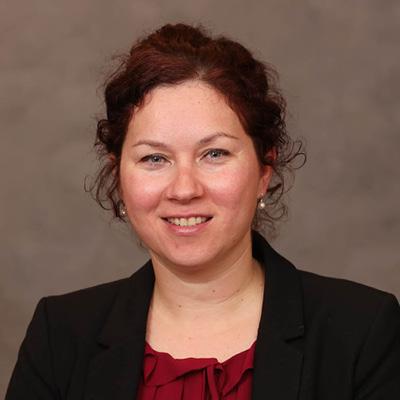
Can Gov. Kathy Hochul Remove Eric Adams as New York City Mayor? What to Know
Political Science Professor Laura Tamman provides an expert analysis to Wall Street Journal on NY Governor Kathy Hochul’s handling of NYC Mayor Eric Adams’ legal troubles.
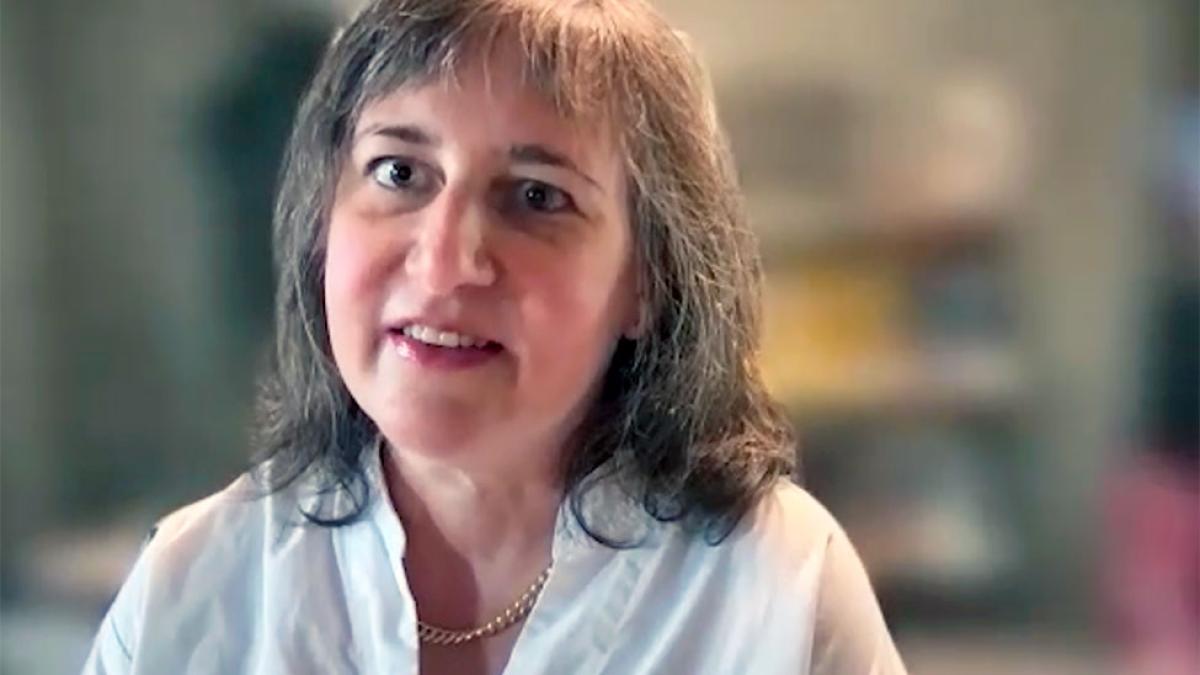
Judge Holds Off On Deciding Whether To Drop NYC Mayor Eric Adams Case
Elisabeth Haub School of Law Professor Bennett Gershman speaks with USA Today about the Justice Department’s motion to dismiss corruption charges against NYC Mayor Eric Adams.
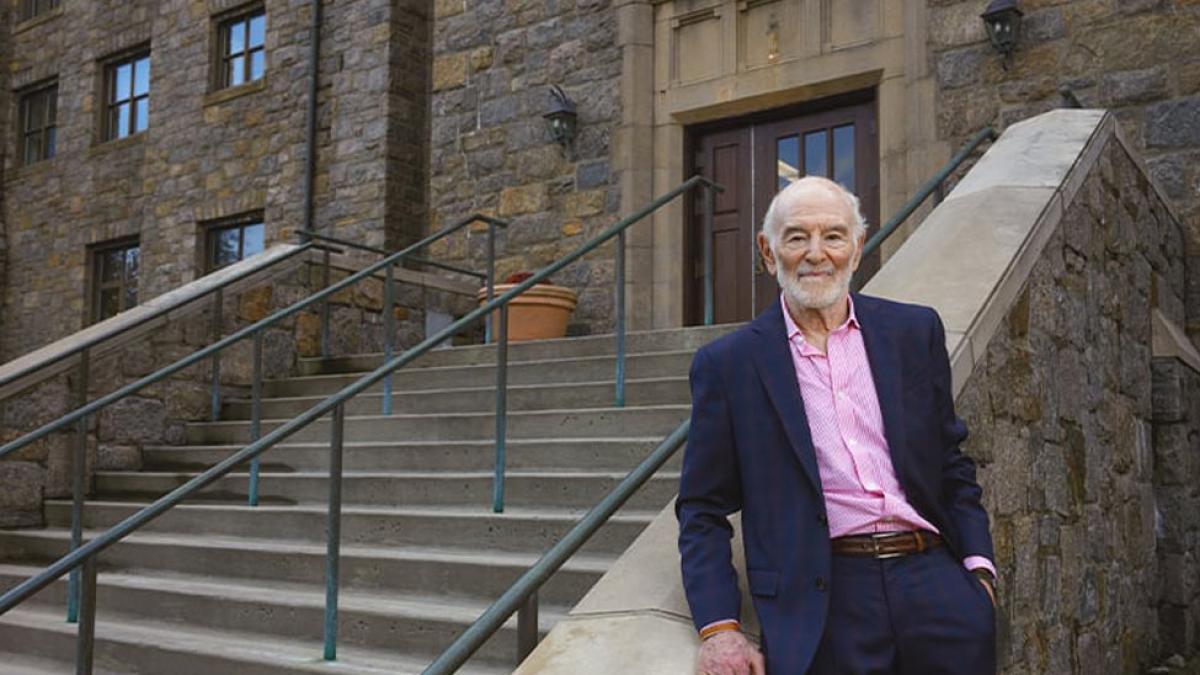
Data Law: A Part Of Cyberlaw We All Should Know About
Adjunct Professor John Bandler provides insight on how data laws were enacted to fill a void and address issues in our cyberworld with consumer data, cybercrime, and privacy.

Power & Politics: Closing The Federal Education Department, Tariffs And Jenkins Wins Special Election
Economics Professor Mark Weinstock was featured on News 12’s Power & Politics to discuss President Trump’s proposed tariffs and the potential closure of the U.S. Department of Education.

Address Science Misinformation Not By Repeating The Facts, But By Building Conversation And Community
Environmental Science Professor Anne Toomey’s article in The Conversation discussing combating science misinformation, emphasizing that engaging in dialogue and building community trust is more effective than simply repeating facts was recently republished by Cobb Courier.
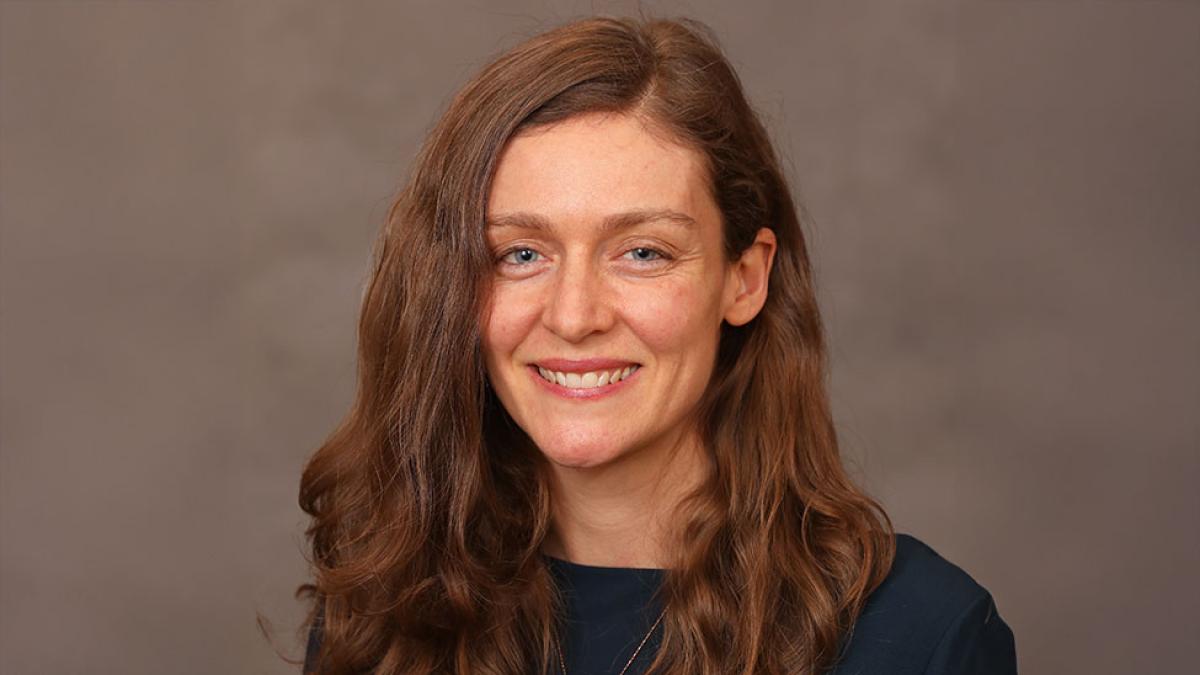
Loud Budgeting
Lubin Professor Larry Chiagouris speaks to WalletHub about loud budgeting, a trend where people openly share their spending limits with friends and family.
Shark Tank's Daniel Lubetzky Set To Join The Front Yard At Pace University
Soap Central reports Shark Tank mentor Daniel Lubetzky is all set to join Pace University's Front Yard for their upcoming event on Monday, March 3 from 7:00 p.m. to 8:30 p.m.
Haub Law’s BLSA Mock Trial Team Excels at the 2024–2025 Constance Baker Motley Mock Trial Competition
The Elisabeth Haub School of Law at Pace University’s Black Law Student Association (BLSA) Mock Trial Team delivered a standout performance at the 2024–2025 Constance Baker Motley Mock Trial Competition, with a top two finish in the entire Northeast region.
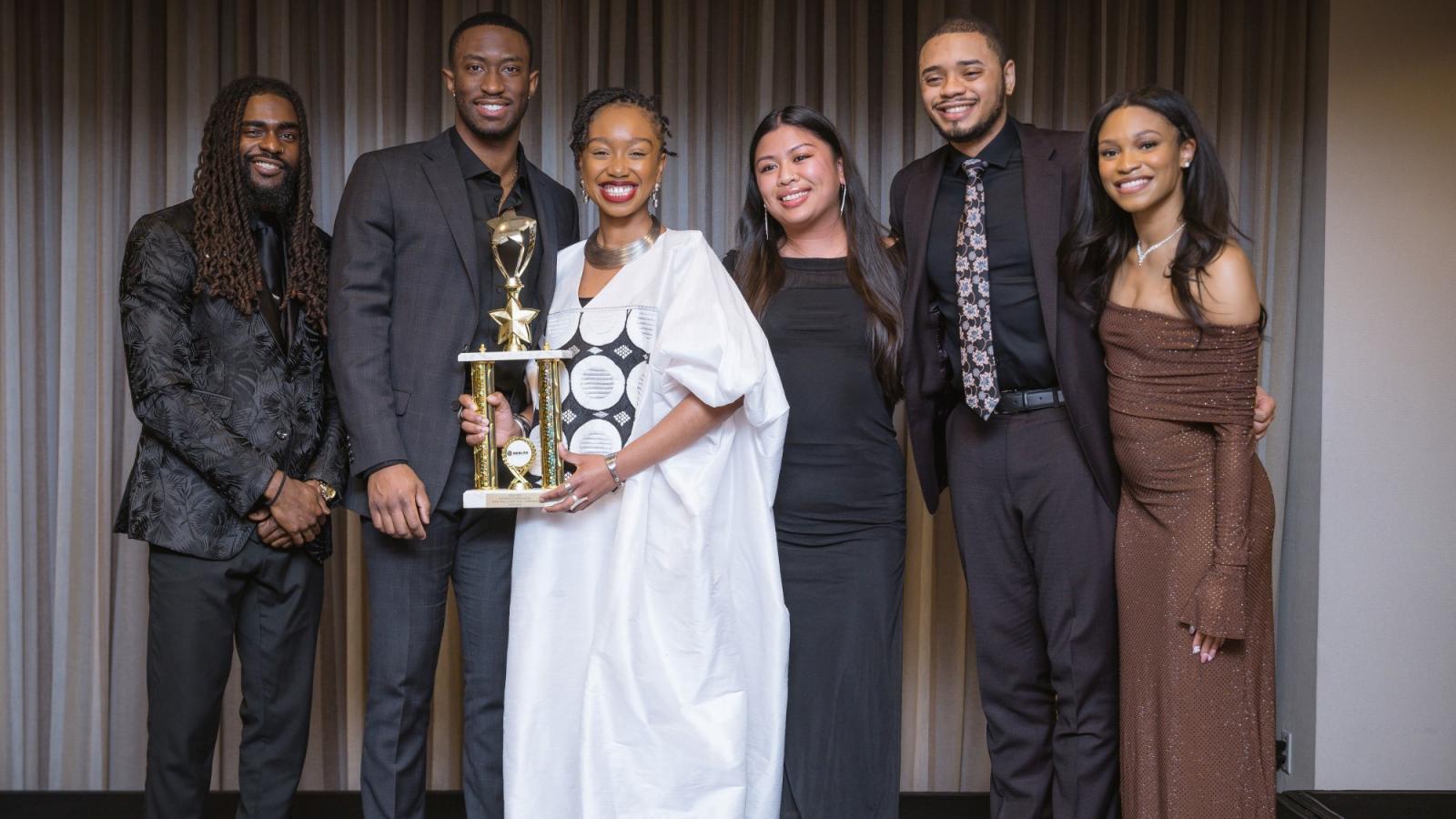

The Elisabeth Haub School of Law at Pace University’s Black Law Student Association (BLSA) Mock Trial Team delivered a standout performance at the 2024–2025 Constance Baker Motley Mock Trial Competition, with a top two finish in the entire Northeast region. The Constance Baker Motley Mock Trial Competition was held as part of the 57th Annual Northeast Black Law Students Association (NEBLSA) Regional Convention.
The Haub Law BLSA team traveled to Boston, Massachusetts to compete in the highly competitive and prestigious competition, known for its rigorous standards and elite competitors. Over the course of four intense days, the Haub Law team, comprised of Julie Bazile (2L), Jason Lee (4L Flex), Andrew Pierre (3L), and Ashley Baizas (3L), competed in five back-to-back rounds, facing off against thirteen of the most talented teams across the Northeast region. The team was accompanied and coached by Adjunct Professor Betty Lawrence Lewis Esq., Pernell Telfort Esq., and alumni coaches Brianna Pryce, Esq. ’20, and Jamal J. Wyse, Esq. ’19.
“Each round tested our skills in trial advocacy, including opening statements, witness examinations, objections, and closing arguments, all before panels of experienced judges and legal professions,” said student team member Jason Lee (4L Flex). “Our preparation, teamwork, and dedication were on full display as we demonstrated our command of the law, sharp analytical skills, and persuasive courtroom presence. The competition was fierce, but we remained composed under pressure, adapting to each new challenge and opponent with confidence and professionalism.”
A true testament to the team’s hard work and talent, not only did Haub Law’s BLSA team finish in the top two, but Julie Bazile (2L) received an individual award for Best Prosecution Advocate. “This experience not only strengthened our legal skills, but also deepened our passion for advocacy, teamwork, and the pursuit of justice,” said Black Law Student Association President and team student member, Julie Bazile (2L). “Competing in the Constance Baker Motley Mock Trial was an unforgettable milestone, and we are proud to have represented our school with excellence and integrity.”
“I continue to be so proud and confident of the outstanding work of Haub Law’s BLSA teams,” said Professor Louis Fasulo, Director of Advocacy Programs and Professor of Trial Practice. “Under the direction of great coaching this team once again is going to Nationals. It is a tribute to great advocacy skills, hard work and a true competitive spirit.”
The Elisabeth Haub School of Law at Pace University’s trial advocacy program is consistently ranked among the top institutions by U.S. News and World Report, with the most recent ranking of #13 in the nation, placing it impressively among the top 10% of schools nationwide.
Haub Law Co-Hosts Prestigious New Directions in Environmental Law Conference at Yale
- Read more about Haub Law Co-Hosts Prestigious New Directions in Environmental Law Conference at Yale
The Elisabeth Haub School of Law at Pace University proudly co-hosted the New Directions in Environmental Law Conference (NDEL) held at Yale Law School in New Haven, CT on February 15, 2025. This year's conference analyzed changes and emerging issues in environmental law in a collaborative atmosphere. Organized by students from Haub Law, Yale Law School, Yale School of the Environment, and Vermont Law & Graduate School, the event featured insightful discussions on pressing environmental issues.
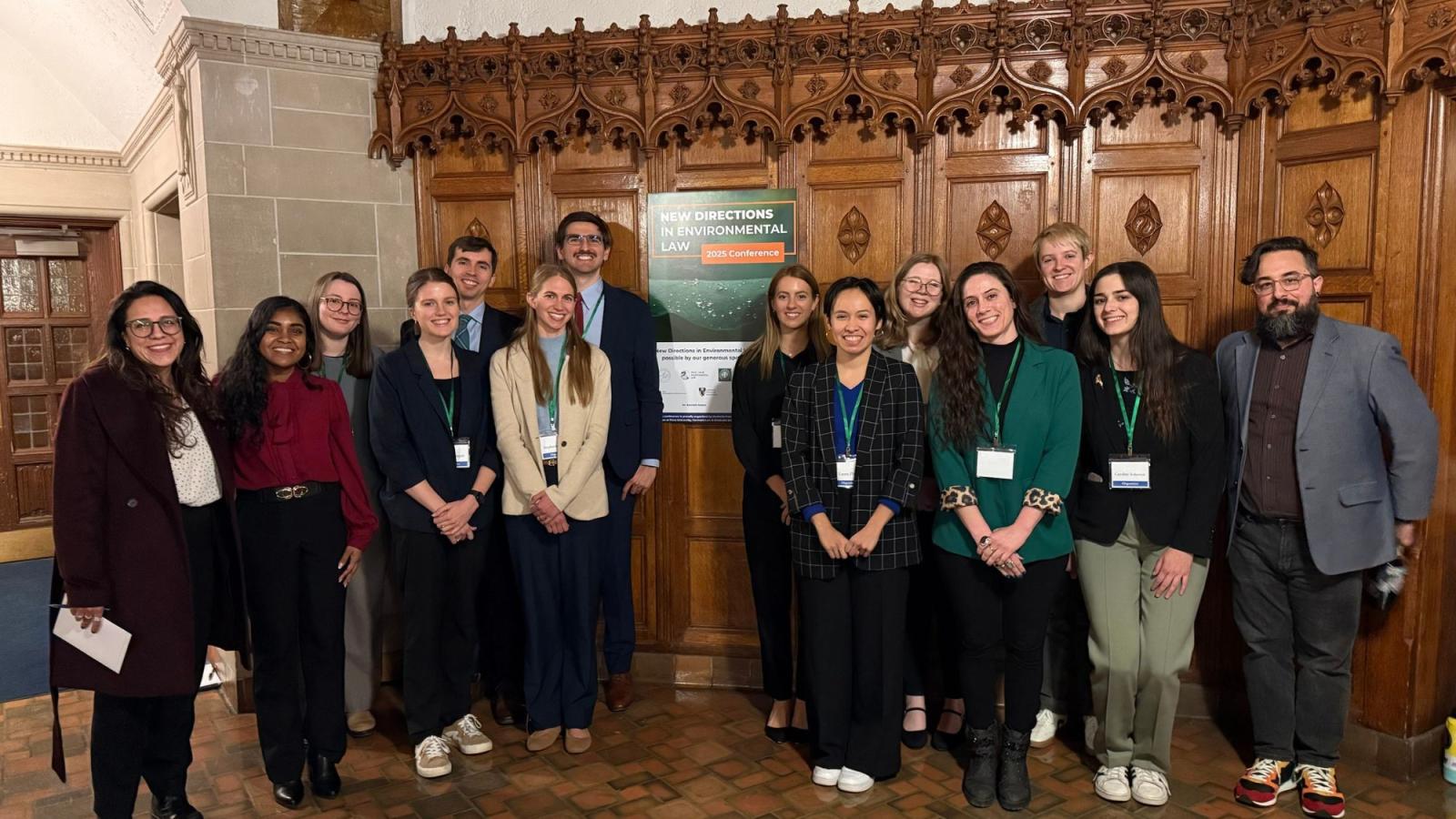
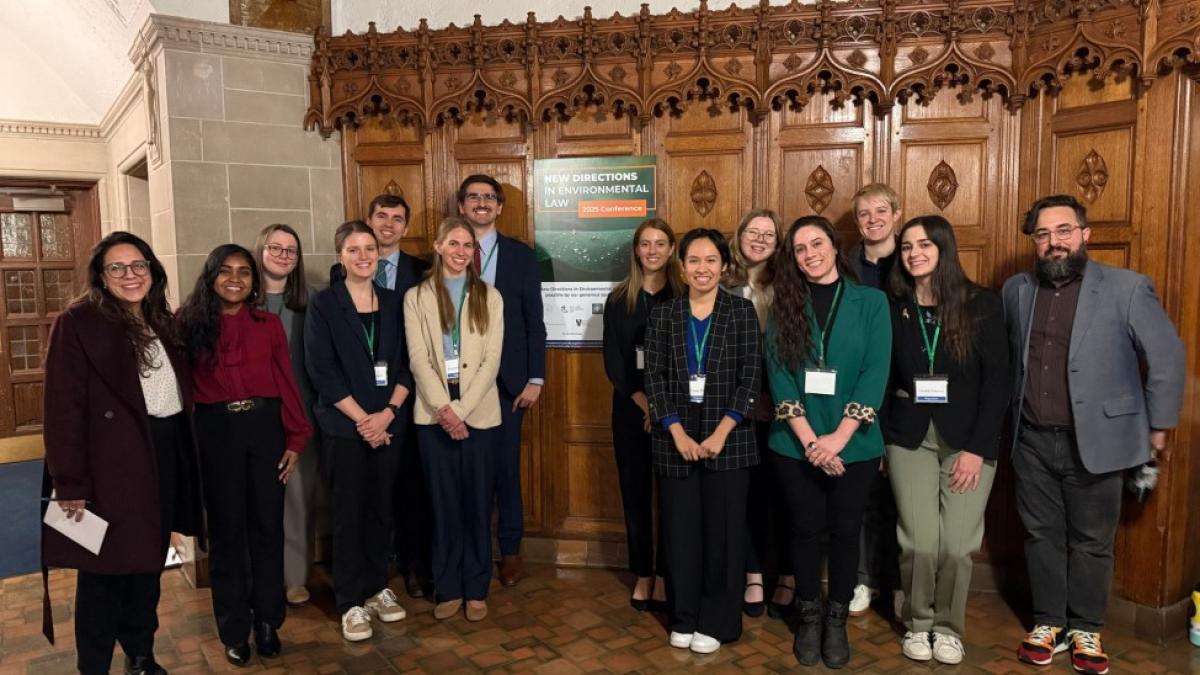
The Elisabeth Haub School of Law at Pace University proudly co-hosted the New Directions in Environmental Law Conference (NDEL) held at Yale Law School in New Haven, CT on February 15, 2025. This year's conference analyzed changes and emerging issues in environmental law in a collaborative atmosphere. Organized by students from Haub Law, Yale Law School, Yale School of the Environment, and Vermont Law & Graduate School, the event featured insightful discussions on pressing environmental issues.
Since its inception in 2011, students have organized the NDEL with the goal of examining changes in and novel approaches to Environmental Law. While Haub Law has played an active role in the event since the beginning, in 2021 the School became an official co-host of the event, with a Haub Law student serving as a conference co-chair each year since. This year, Haub Law faculty and students played key roles building up to and during the NDEL Conference – organizing, moderating, presenting, transcribing, and volunteering. As home to the #1 ranked environmental law program, Haub Law remains committed to driving the future of environmental law and policy, and its role in co-hosting NDEL 2025 highlights its position as a leader in environmental legal education.
Some of the key contributions of Haub Law to the 2025 NDEL Conference include several faculty, including Professors Nicholas Robinson, Camila Bustos, and Josh Galperin, serving as speakers as well as Haub Law students, Michael Grant and Tamika Thomas, presenting their new research during the Conference, and Haub Law student Frances Gothard serving as the 2025 NDEL Conference Co-Chair. Additionally, Professors Galperin and Bustos serve as the Faculty Advisors for the Conference with many Haub Law students leading a planning committee with students from other collaborating law schools in the months before and during the conference, including Rita Flanagan, Alysia LeComte, Julie Frey, Ryan York, and Eli Calhoun. Also serving an integral role were seven Haub Law students who served as student reporters for the keynote speaker and panels, the content of which will be published in Pace Environmental Law Review’s GreenLaw Blog.
“For nearly 15 years, NDEL has been a preeminent student-run conference on environmental law and the largest such conference in the Eastern United States,” said Haub Law Professor and NDEL Conference Co-Advisor, Josh Galperin. “The collaborative and interdisciplinary approach that it takes to environmental law has made it a success, reflecting the values of the Haub Law environmental program and the many other participant institutions. But the real highlight is the students who work incredibly hard for many months to make this conference a reality. They aren’t just generating knowledge, they are building professional networks that are having ripple effects on environmental law and policy across the world.” Currently, in addition to his role as an Associate Professor of Law at Haub Law, Professor Galperin is the director of the joint degree program between Haub Law and Yale’s School of the Environment and a Visiting Professor of Law at Yale Law School where he teaches Environmental Law. Professor Galperin has been involved with Yale for nearly two decades, first a student, then as a lecturer, and also as the associate director of the Yale Center for Environmental Law and Policy and the director of the Goldman Sonnenfeldt Environmental Protection Clinic at Yale, both organizations are named sponsors of this year’s NDEL Conference.
This year’s keynote speaker was Ali Zaidi, Former White House National Climate Advisor, Assistant to the President of the United States, and Head of White House Climate Policy Office. The full-day conference also featured diverse panels and lectures, bringing together renowned experts in environmental law, policy, and governance. Discussions covered a wide range of timely and complex issues, including:
- New Directions from a Hostile White House: What Does a Second Trump Administration Mean for Environmental Law?
- Roots and Resistance: New directions in Indigenous Rights and Environmental Justice
- New Directions in the Law and Policy of Climate Migration
- New Directions in Biodiversity Law: Challenges and Opportunities
- Is Traditional Environmental Law Really a Barrier to Achieving U.S. Climate Goals? New Directions in the Permitting Debate
- New Directions in Ocean Law: International Ocean Governance
The conference concluded with a networking reception, providing attendees with the opportunity to connect with leading scholars, practitioners, and fellow students passionate about shaping the future of environmental law.
“Through its innovative panels, NDEL stays true to its name by covering emerging or "new directions" in the field, which means the conference is constantly pushing the boundaries of the field beyond "traditional" environmental law,” said Haub Law Professor and NDEL Conference Co-Advisor, Camila Bustos. “In a time when environmental law is in flux, students are taking a leadership role in fostering important conversations about where we have been and how to move forward.” Notably, while she was a law student at Yale Law School, Professor Bustos was a student organizer of the conference.
In a time when environmental law is in flux, students are taking a leadership role in fostering important conversations about where we have been and how to move forward.
“It was an absolute honor to serve as co-chair alongside [Yale Law student] Stephanie Prufer and collaborate with our incredible planning team to bring the 2025 New Directions in Environmental Law conference to life,” said 2025 NDEL Conference co-chair, Haub Law student Frances Gothard. “This annual, student-organized event continues to be a space where people from around the world—who are passionate about environmental issues—can come together to share their perspectives and insights. This year, we hosted six panels, welcomed 27 speakers, and had 320 registered attendees from 14 countries. We provided a space for critical and timely conversations to happen. At the same time, we also provided students with the opportunity to connect with fellow law students, network with professors and practitioners, present their research, and be published through PELR’s GreenLaw Blog. Overall, it was a tremendous success!”
In closing remarks at the conference, Professor Galperin emphasized the dedication and leadership of the students who made the event possible and provided insightful and timely comments on the current state of environmental law, noting the continuous importance of NDEL, but especially in times when environmental law is “in flux.” “NDEL is an institution from which leaders emerge,” remarked Professor Galperin. “What we have learned from almost 15 years of this conference is that the paths forward aren’t always strictly in the legal doctrine. They involve action, persuasion, imagination, collaboration, and careful articulation of shared values. And those are the democratic values that will lead us in the new directions we need now more than ever. And those are the directions that conferences like NDEL will guide us towards.”
A collaborative effort across institutions, in addition to Haub Law, the 2025 NDEL conference was also sponsored by Yale Law School, Yale School of the Environment, Goldman Sonnenfeldt Environmental Protection Clinic, Yale Center for Environmental Law & Policy, Haub Environmental Law Program, Yale Graduate & Professional Student Senate, American Bar Association Section for Environment, Energy, & Resources, Law Students for Climate Accountability, and Yale Environmental Law Association.
Championing Equity and Public Service: A Conversation with Pace Professor Gina Scutelnicu-Todoran
Professor Gina Scutelnicu-Todoran, PhD, has dedicated her career to exploring the intersections of gender equity, social justice, and public administration. She shares insights into her latest projects, her passion for mentoring students, and the impact of hosting NECoPA 2024 at Pace.


Professor Gina Scutelnicu-Todoran, PhD, has dedicated her career to exploring the intersections of gender equity, social justice, and public administration. As a professor in Pace University’s Master of Public Administration (MPA) program and chair of the Northeast Conference on Public Administration (NECoPA), she combines her research with real-world advocacy to drive meaningful change. In this conversation, she shares insights into her latest projects, her passion for mentoring students, and the impact of hosting NECoPA 2024 at Pace.
A Passion for Equity and Public Service
For Scutelnicu-Todoran, the study of gender and social equity isn’t just academic—it’s personal. “My research sits at the intersection of balancing democratic values—like accountability, transparency, and equity—with economic values such as efficiency and effectiveness,” she explains. Her recent work examines how gender impacts faculty career trajectories in academia, culminating in her book, Managing Gender Inequity in Academia.
Through her research, she has uncovered unsettling patterns. “Women in academia often face higher tenure and promotion standards, particularly in the emotional labor of teaching and service, which is valued less in promotion decisions,” she notes. Additionally, she found that women’s research, particularly when it diverges from traditional public affairs topics, is cited less and their achievements are often overlooked. “Even those who break through into leadership roles often encounter the ‘glass cliff’—being placed in positions with limited resources and support,” she adds.
Research That Shapes Policy
Beyond academia, Scutelnicu-Todoran is using research to influence public policy. She is currently working on a grant-funded Hispanic Population Community Needs Assessment for Westchester County, New York. In collaboration with Rebecca Tekula, PhD, and Adrian Rivero, she is gathering data to help inform policy recommendations that address the specific needs of Hispanic residents. “Approximately one-third of Westchester County’s population is Hispanic,” she explains, “and this research will ensure that policy decisions are shaped by the voices of those directly impacted.”
Mentorship and Student Collaboration
Teaching and research go hand in hand for Scutelnicu-Todoran, and she actively involves students in her work. “I’ve mentored graduate students in presenting their research at conferences, co-authored publications with them, and advised on numerous master’s theses and doctoral dissertations,” she says. Her collaborative approach models lifelong learning and emphasizes the power of working together to solve complex problems.
Bringing NECoPA to Pace
As the current chair of NECoPA, Scutelnicu-Todoran played a pivotal role in bringing the 2024 conference to Pace’s New York City campus. “It was an opportunity to showcase our MPA program to peers from across the Northeast and beyond,” she says. The conference theme, Building a Flexible Public Service through Innovation and Collaboration, addressed the evolving challenges in public administration.
The event brought together approximately 120 attendees, including faculty, professionals, and graduate students. “Fourteen MPA students volunteered, and several presented research on issues ranging from social equity to the role of social media in government relations,” she shares with pride. “It was inspiring to see their work recognized in a professional setting.” Scutelnicu-Todoran also credits her MPA departmental colleagues and chair, who were very supportive and worked closely with her to navigate logistics and handle the last-minute surprises on the day of the event. She adds, “I am thankful to our Department Chair Rebecca Tekula, Adrian Rivero, Professor Tiffany Henley, Professor Steve Rolandi, and Professor Ric Kolenda for all their contributions to the conference.”
Looking Ahead
Professor Scutelnicu-Todoran remains driven by a deep commitment to public service. Whether shaping policy, mentoring students, or leading professional organizations, her focus remains on creating opportunities for meaningful change. As she looks to the future, she is excited about writing a second book, incorporating AI into her research and teaching, and perhaps even completing a 5K open water swim.
Her motivation? “My family, my students, and my belief in leading by example,” she says. “Researching gender inequity isn’t just a professional pursuit—it’s my lived experience. And I want to continue making a difference.”